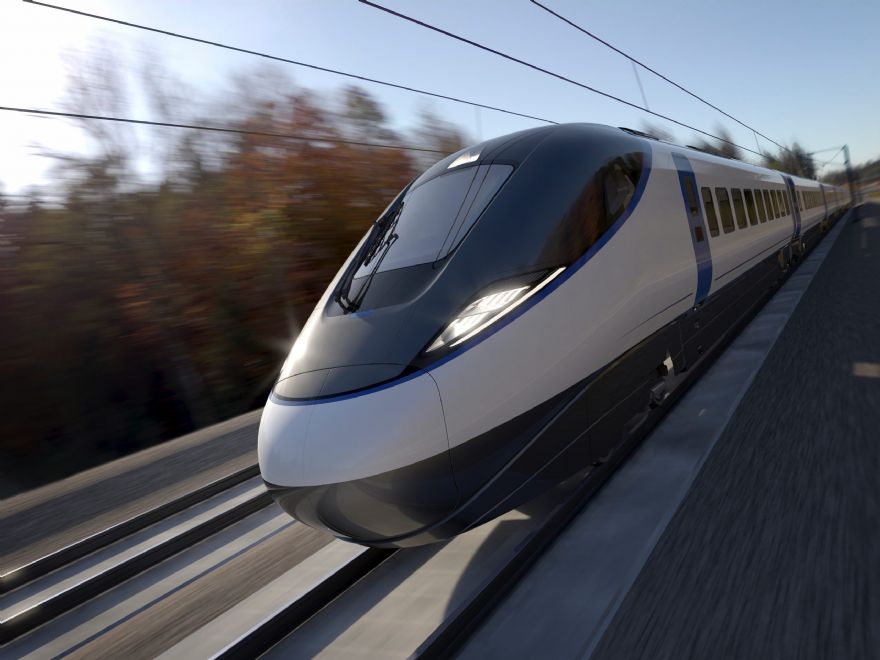
UK manufacturers believe the original plan for a high speed rail line reaching Leeds and Manchester should be resurrected as part of a major strategic investment in the rail network to significantly increase passenger capacity and thereby free-up capacity for rail freight on existing lines.
The call comes on the back of a major survey on rail investment and logistics published today by
Make UK and
Barclays UK Corporate Bank. It shows that almost nine in 10 companies (89%) believe the original high-speed rail line should still go ahead, while a similar number believe there should be greater investment in faster connections between the big Northern cities of Liverpool, Manchester, Sheffield, Hull and Newcastle.
According to Make UK, this investment is essential if the Government is to meet its target of increasing rail freight by three quarters by 2050 while, at the same time, reducing carbon emissions from the estimated 12 million journeys which will be carried out by lorries in 2050.
In addition, Make UK believes targeted investment in the UK’s freight infrastructure could unlock major economic benefits by expanding rail capacity and improving connectivity. Linking the UK’s largest port at Felixstowe through the Oxford-Cambridge Arc — which, together with London, forms the “Golden Triangle” of universities and centres of research and innovation — and onward via HS2 to Birmingham, Liverpool, and Manchester, could recoup much of the value spent on HS2 already, while also driving economic growth across the regions and contributing towards ‘net zero’ decarbonisation.
Inspired by successful models in France, the creation of logistics hubs at strategic locations across this industrial spine — such as Ely Junction and Trafford Park — could unleash economies of scale by improving access to skills and innovation across the country.
Verity Davidge, director of policy at Make UK, said: “It is clear that the current levels of rail capacity aren’t suitable for the levels of freight traffic the Government is predicting in the future. As a result, if industry is to make greater use of rail then we need the extra capacity which a high speed link for passenger traffic would free up. This would provide a valuable opportunity to invest in multi-mode hubs which would improve connectivity between our major ports and better integrate road and rail routes through the spine of the country.”
Significant environmental benefitsLee Collinson, head of manufacturing, transport and logistics at Barclays UK Corporate Bank, said “It is important that UK transport infrastructure is at the forefront of discussions among policymakers. Upgrading and integrating our road, rail, and port systems is crucial for boosting productivity, decarbonising transport, and supporting long-term competitiveness. By addressing key barriers and enhancing rail freight, we can achieve significant environmental benefits, reduce lorry journeys, and improve road safety. We are excited to work with industry bodies like Make UK as we deliver for the sector, going beyond numbers and supporting its plans for growth.”
The survey provides a wide-ranging view of how manufactures currently manage their logistics operations and how, with the right investment, the use of rail could be improved with the benefits of greater access to labour and reductions in emissions. Currently, road is overwhelmingly the main mode of transport for nine in ten (89%) of manufacturers, with six in 10 (59%) regarding road investment as critical for their just in time operations. This compares to just under half (46%) for port investment and just under four in 10 (38%) rail.
The survey shows that the biggest deterrence to making greater use of rail for freight is cost for just under half (45%) while low volumes (42%) and lack of access to local terminals (39%) are also cited. As current policies stand, the use of rail is being actively discouraged given the cost per tonne in miles for rail has increased by 10% in the last decade compared to just 3% for road.
However, conversely a third of companies (31%) say rail should be the priority for transport investment, while almost two thirds (61%) say Government should prioritise investment in multi modal transport hubs (ie ensuring ports, road and rail have greater connectivity) to increase the use of rail for freight.
According to Make UK, making greater use of rail for freight would not just reduce emissions and help manufacturers meet their ESG targets, it would bring greater access to a wider pool of labour (62%) while a similar number said it would encourage them to invest more in skills and capital expenditure.